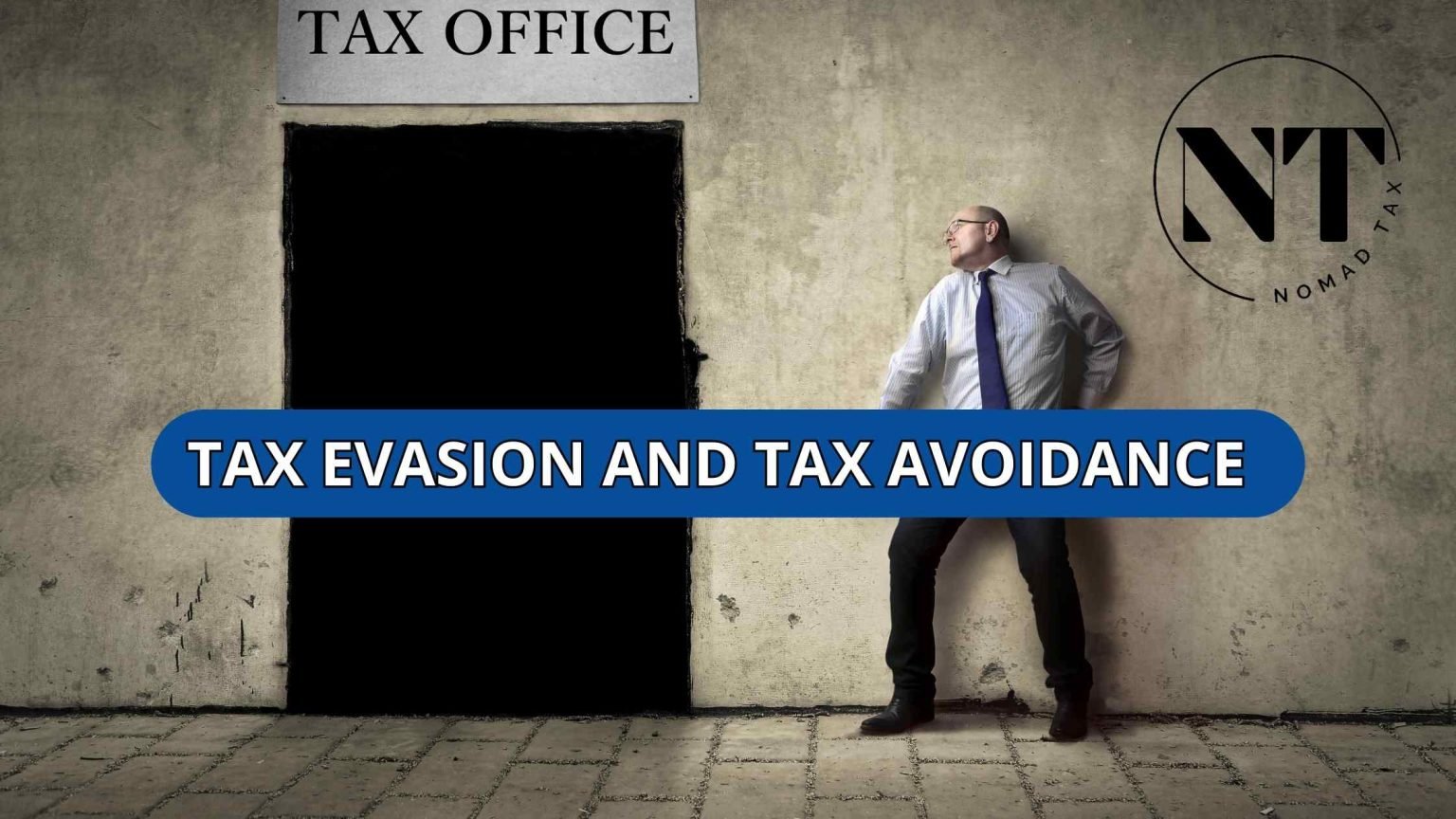With rampant inflation and burdensome taxes in Europe, it is essential to consider the available options for businesses in terms of assessing the impact on their tax burden. In this context, the application of tax strategies to analyze changes in tax obligations becomes highly relevant, with Tax Planning being a key tool in this process.
Tax Planning, also known as “tax structuring,” refers to the use of legal and legitimate resources to effectively reduce a company’s tax burden. This is where tax evasion and tax avoidance come into play.
If you would like to learn more and schedule a consultation with our expert lawyers, you can do so through our WhatsApp at +15055884115.
Indice del artículo
What is tax planning?
In summary, tax planning involves implementing strategies that leverage the benefits provided by the law to ensure that companies meet their tax obligations and achieve savings. It is a process that seeks to ensure that companies make proper use of the tax benefits granted by tax regulations and avoid unnecessary tax burdens.
It is important to note that tax planning must be carried out within legal limits and avoid interpretations of the law that could result in financial penalties.
This means that by applying tax strategies that respect the legal framework, tax avoidance and tax evasion are avoided.
For Tax Planning to achieve its optimization goals and comply with regulations, it is essential to have the support of a law firm with interdisciplinary knowledge in areas such as commercial, contractual, tax, and criminal law, among others. This legal support is crucial for reducing the tax burden properly and avoiding situations of tax evasion and tax avoidance.
Next, we will explain the concepts of tax avoidance and tax evasion.

What is tax avoidance?
Tax avoidance involves the use of practices aimed at reducing or avoiding the payment of taxes in an illicit manner. In other words, a company or individual uses legal loopholes or interpretations far from the purpose of the law to reduce their tax obligations. This leads to an indirect violation of the law, as it is achieved through actions that are formally legal. To address tax avoidance, tax authorities may introduce or modify laws and issue regulations to address specific situations.
An example of tax avoidance can be observed when a company includes expenses that can be considered dubiously deductible. The goal is to reduce the taxable amount, such as Corporate Tax, by taking advantage of ambiguities in the law.

What is tax evasion?
Tax evasion occurs when a company fails to pay taxes legitimately generated by hiding information or income. This is a direct violation of tax law and, therefore, completely illegal. Tax evasion can be penalized criminally and carries serious legal consequences, including imprisonment.
Tax evasion involves underreporting income, inflating deductions, or hiding money abroad to reduce the amount of taxes owed.
For example, tax evasion may involve not declaring sales made by a business or filing false deductions accompanied by fraudulent documentation.
What are the differences between tax evasion and tax avoidance?
Despite the similar-sounding terms, tax evasion and tax avoidance have different legal natures. The main differences are as follows:
- Tax evasion is a criminal offense, while tax avoidance refers to practices that avoid tax obligations without necessarily committing a criminal offense.
- In the case of tax avoidance, it avoids the creation of a tax obligation, whereas in tax evasion, there is already an obligation that is not fulfilled by hiding information or income.
- Tax avoidance is addressed through administrative interpretation and the issuance of regulations, while tax evasion is treated as a direct violation of criminal law.

What is the difference between tax planning, tax evasion, and tax avoidance?
It is crucial to understand the differences between these three concepts to ensure that tax planning actions are carried out within legal limits. Tax planning involves the optimal and legal management of tax matters, using the resources and benefits provided by the law. Tax avoidance refers to practices that legally avoid tax obligations, while tax evasion involves non-compliance with tax obligations and is considered a direct violation of tax law.
Example of Tax Evasion Let me give you an example: Let’s say I bake bread, and I’m good at it. But I don’t do it professionally, just for myself. Then, a friend approaches me and wants to buy a loaf from me. I make it and they pay me. The right thing to do would be to declare this income in your annual tax return.
But what do most people do? Of course, they won’t include it. They received cash, the amount is small, the government won’t track it, and therefore, they won’t tax it. I’m not encouraging you to not include these small amounts in your tax return, quite the opposite, but it’s very likely that the government won’t come to you in a couple of years saying, “Hey, you didn’t pay taxes on the 20 euros you received a year ago.”
However, if you think you can have a business offshore, live in another developed country, deliberately not disclose the income you’re earning in that offshore jurisdiction to avoid paying taxes, then it’s a problem. In most cases, it won’t work, as countries now have automatic exchange of information. But even if they don’t, it means that the tax authorities in one country can send a request to another country to provide information about you.
Although it is illegal, I strongly discourage you from doing it. There are many ways to structure your business legally and effectively. It is true that the bigger your business, the higher your income, the easier it is to create an efficient tax structure. But in any case, optimization is possible in most cases; you just have to do it smartly.
Examples of Tax Avoidance
Some of the most common practices in tax optimization include:
- Change of residence: Many individuals and businesses choose to change their place of residence to countries with lower tax burdens or to tax havens. It is important to note that, in the case of individuals, this change must be genuine; otherwise, they may face tax penalties if they continue to spend most of their time in their home country.
- Creation of separate legal entities: Without changing their place of residence, individuals can legally reduce their tax burden by establishing separate legal entities, such as companies or foundations, to which they transfer properties or rights. For example, they can channel income from image rights, property rentals, or intellectual property through these legal entities, which will be subject to lower tax rates than they would be at the personal income tax level.
- Taking advantage of legal ambiguities: Some tax concepts may have varying interpretations, allowing taxpayers to opt for the interpretation that is most favorable from a tax perspective. In general, any term in tax legislation that is not precisely defined can be a potential source of tax optimization.
- Abuse of tax exemptions: Some regions or countries within the European Union use aggressive tax exemptions to attract investments and business or individuals seeking lower taxation.
- Manipulation of transfer prices: Multinational companies can manipulate transfer prices to reduce their taxes. This fraudulent practice occurs when two related parties (buyer and seller) trade at prices designed to influence markets or deceive tax authorities. For example, a company may have a subsidiary in the home country (A) that sells products very cheaply to another subsidiary established in a tax haven (B), and then the latter resells the products at a much higher price to a subsidiary in the destination country (C). This allows both A and C to report low profits, while B, with low taxation, concentrates the gains. These schemes, which operate on all continents, are particularly harmful in less developed regions.
According to estimates by the European Parliament, tax optimization results in annual losses of between 50,000 and 70,000 million euros for the EU member states. Globally, this figure is estimated at 462,000 million euros.
At NOMAD TAX, we have a team of expert tax lawyers who can help your company carry out proper tax planning, ensuring compliance with legal regulations. If you have any questions or need guidance on how to avoid tax avoidance and tax evasion, please do not hesitate to contact us. You can use our contact form or schedule a consultation with our lawyers through the following link. You can also reach us at +15055884115.
FAQs
What is tax avoidance? Tax avoidance involves using legal strategies to reduce the tax burden by taking advantage of gaps or ambiguities in the law.
How does tax avoidance differ from tax evasion? Tax avoidance is legal and uses permissible methods to minimize taxes, while tax evasion is illegal and involves hiding income or falsely reporting to avoid taxes.
Can you provide examples of tax avoidance? Yes, here are some examples:
- Creating a separate legal entity to channel income and take advantage of lower tax rates.
- Leveraging ambiguities in tax law for favorable interpretations.
- Using legitimate tax exemptions from regions with lower taxation.
What examples illustrate tax evasion? Tax evasion includes illegal actions such as:
- Not declaring income or assets in tax havens.
- Filing false statements to avoid taxes.
- Manipulating transfer prices to report profits in favorable tax locations.
What are the consequences of tax evasion? Tax evasion can result in fines, penalties, and even imprisonment, in addition to damaging financial and legal integrity.
How to avoid tax problems? To avoid tax evasion, seek legal and accounting advice, and use tax avoidance strategies within legal limits.
What are the risks of tax avoidance? Tax avoidance can expose taxpayers to audits and tax reviews, which can lead to adjustments and penalties if the strategies used are deemed to cross legal boundaries.
Is it illegal to use tax havens to evade taxes? Having accounts or entities in tax havens is not illegal per se, but using them to hide income or evade taxes is illegal and can have legal consequences.
What measures can companies take to avoid aggressive tax avoidance? Companies can adopt transparency and tax compliance policies, as well as ensure that their tax strategies are within legal and ethical boundaries.
How does tax planning relate to tax evasion and tax avoidance? Tax planning can be a fine line between legal avoidance and illegal evasion of taxes. What are the ethical and legal boundaries?
What are the tax planning strategies that can cross the line into tax evasion? Some tax planning strategies can be perceived as aggressive tax avoidance and evasion if not executed within legal limits.
How can individuals and businesses balance tax optimization with legality? It is crucial to understand how to carry out effective tax planning without engaging in illegal or ethically questionable activities.
What role does ethics play in tax planning? Ethics play a significant role in determining whether a tax planning strategy is acceptable or crosses the line into tax evasion.
How can tax authorities address tax evasion and tax avoidance through the regulation of tax planning? Tax regulations evolve to close gaps that allow tax evasion and tax avoidance.



